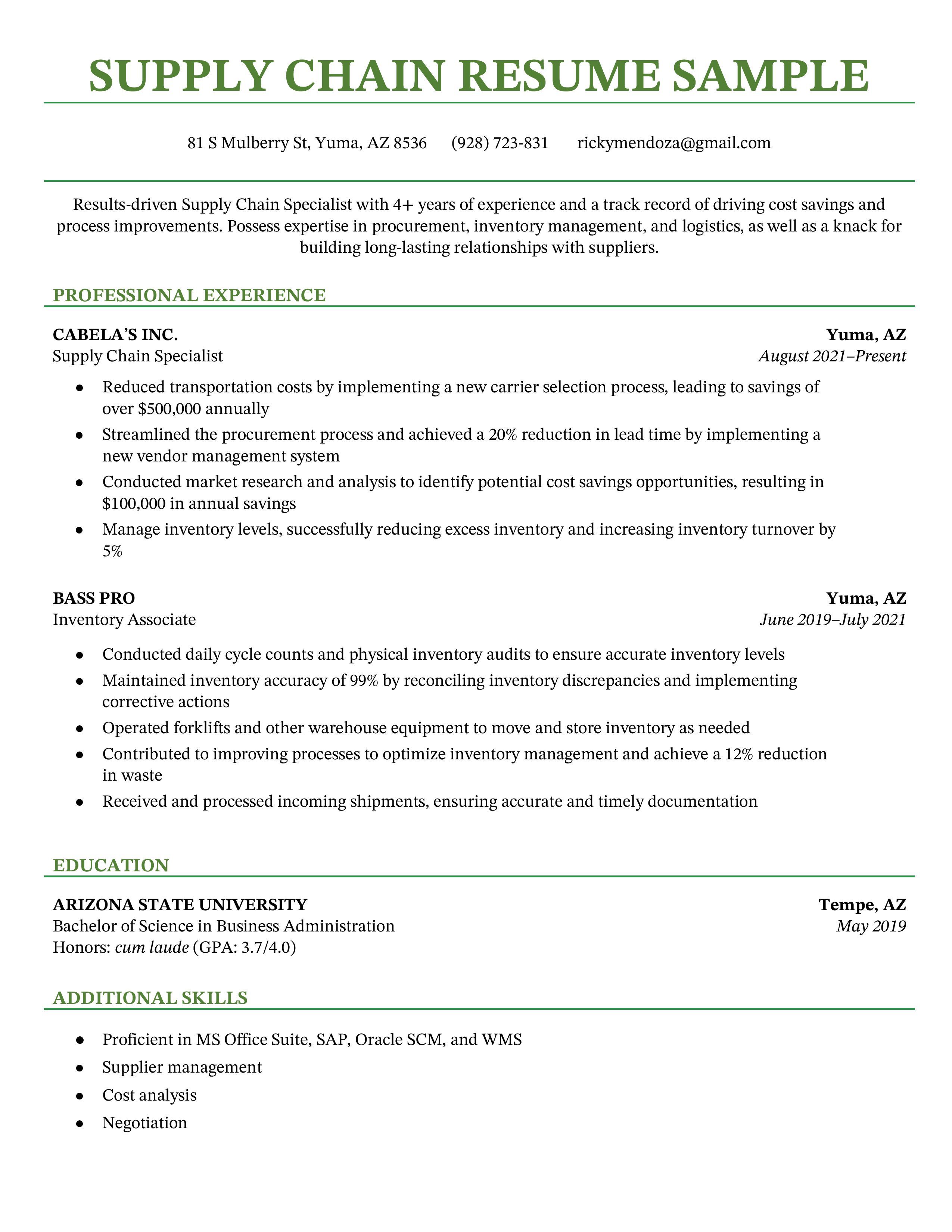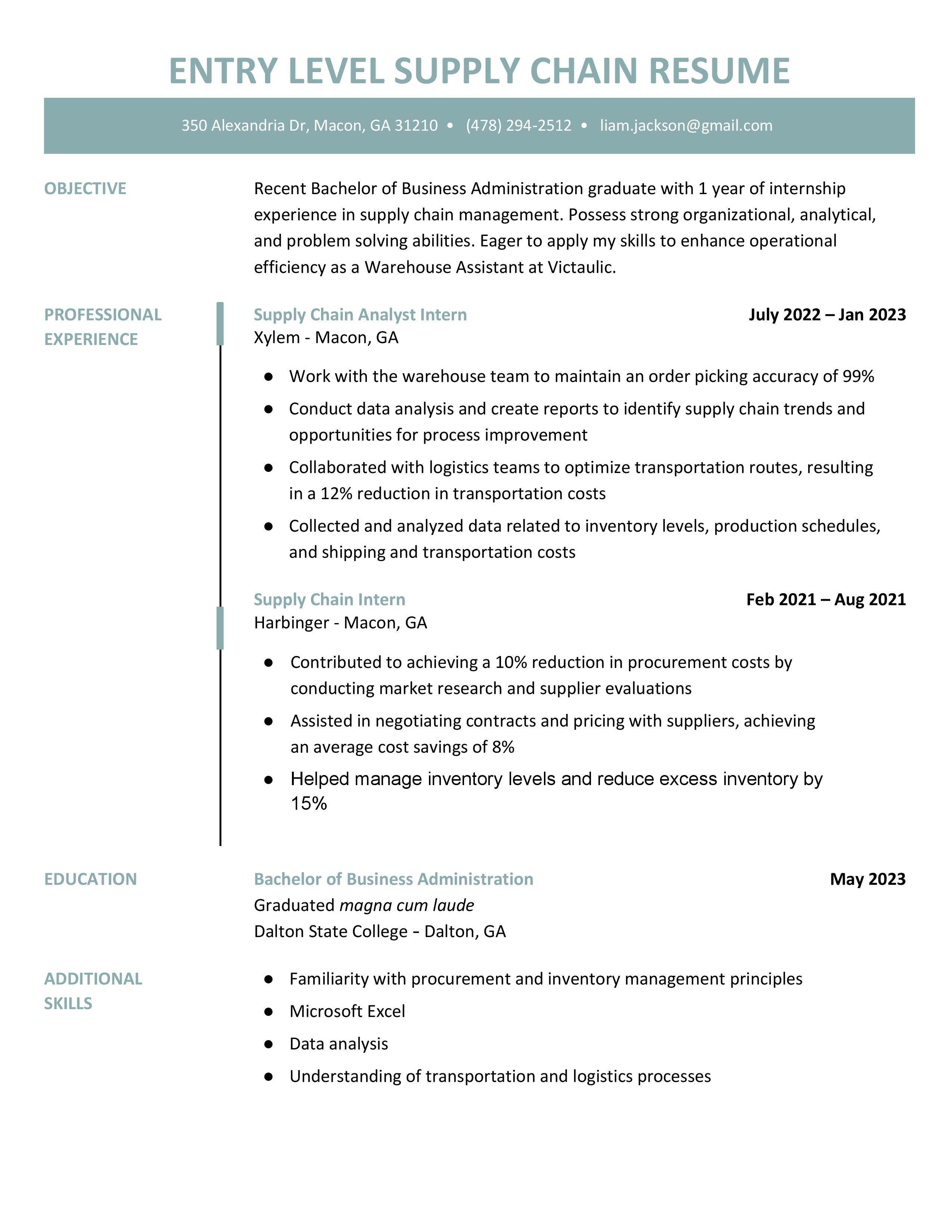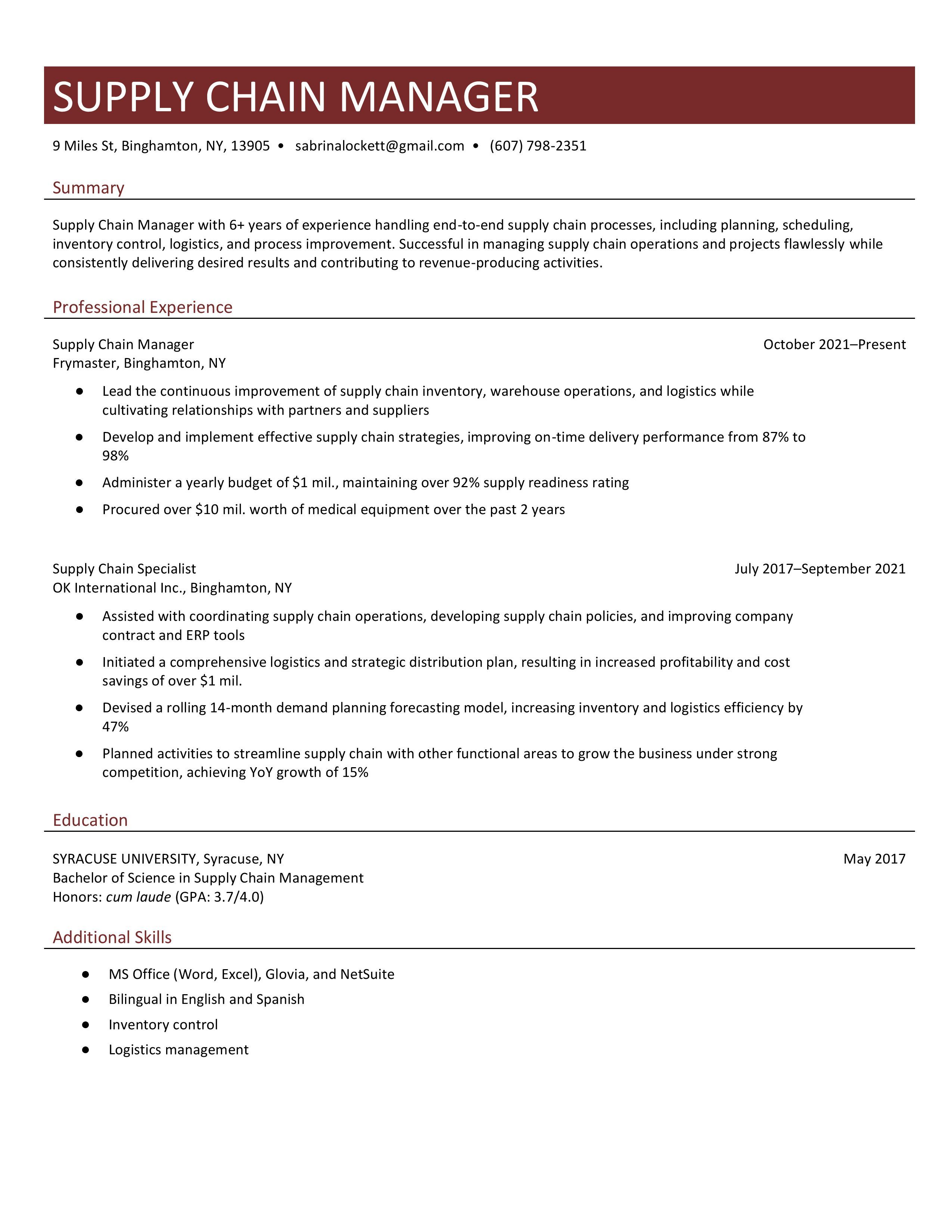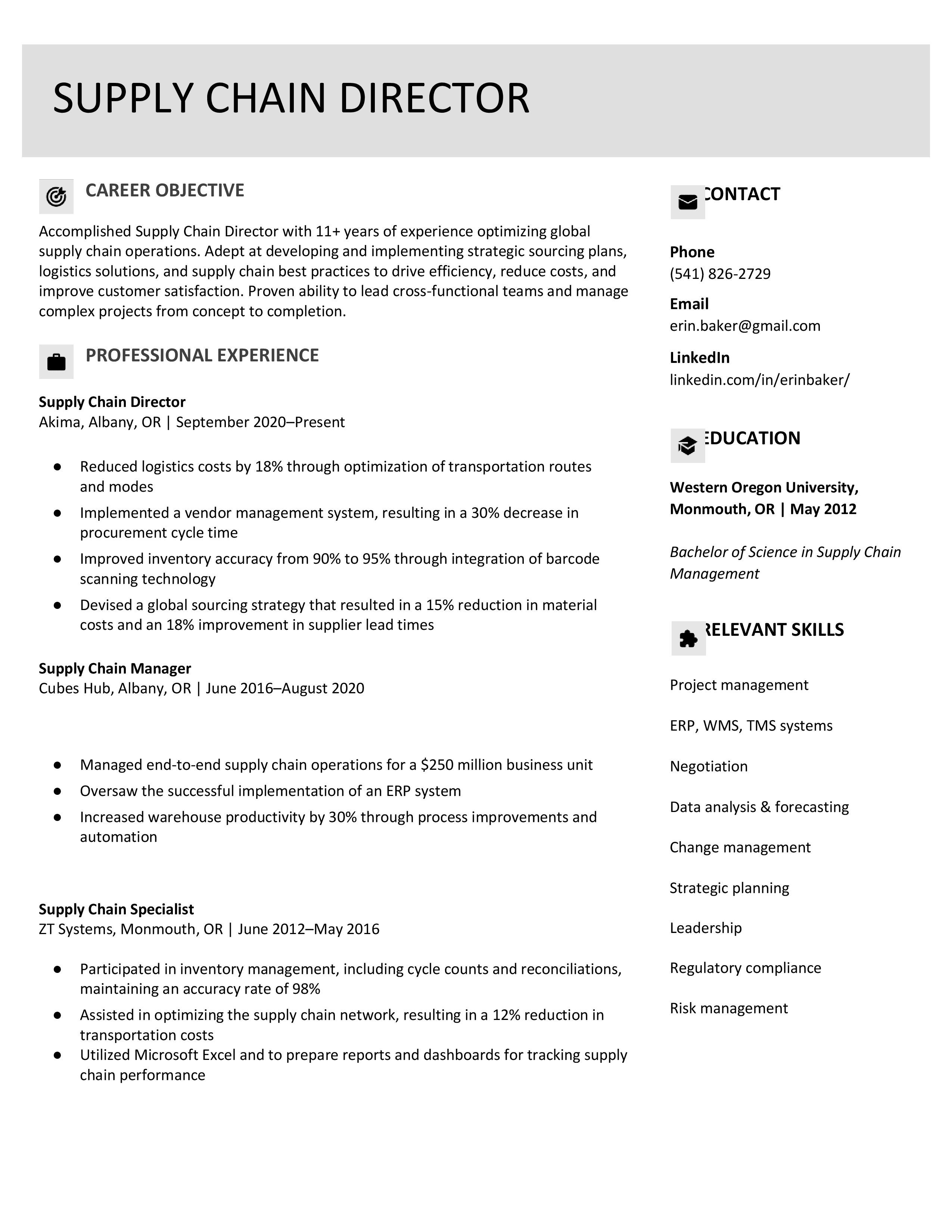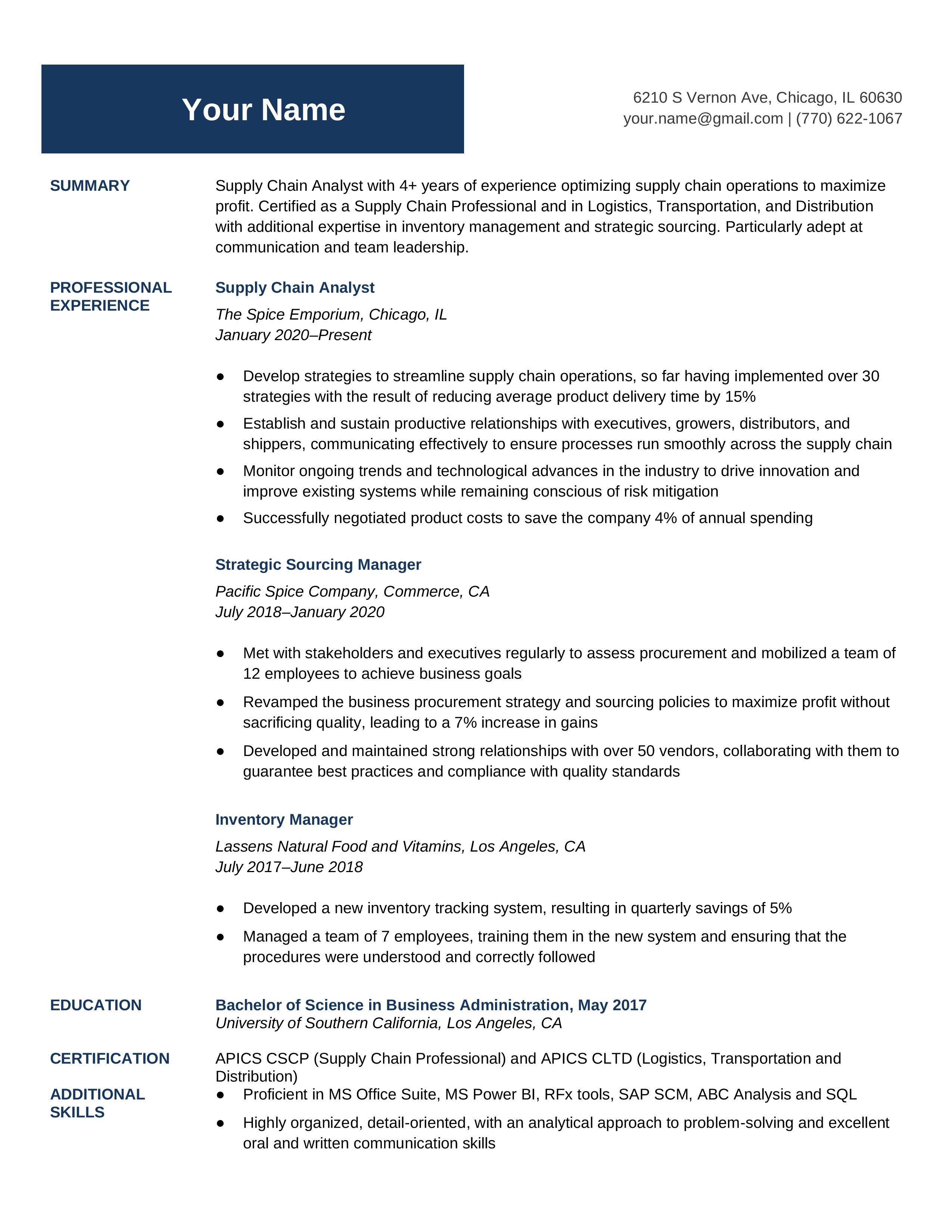Supply Chain Resume: Free Templates & Expert Tips to Boost Your Career
Published on November 1st, 2024
In today’s fast-paced and highly competitive job market, having a robust and focused resume is critical for success in the supply chain industry. Whether you’re an experienced professional or new to the field, knowing how to present your skills, achievements, and experience is key to standing out.
In this blog, we’ll explore essential elements of a supply chain resume, from critical skills to formatting tips, to help you create a resume that highlights your expertise and drives hiring interest.
About Supply Chain
A supply chain is the network of processes, people, and resources in making and bringing a product from where it is first conceived to the final customer. It includes everything from sourcing raw materials to manufacturing, logistics, warehousing, and last-mile delivery. SCM concerns itself with the strategic coordination of activities to achieve efficiency, reduce costs, and meet customer demands.
Check out the free templates for supply chain resumes.
Template 1
Template 2
Template 3
Template 4
Template 5
How to Write a Supply Chain Resume?
1. Start with a Strong Summary Statement
A powerful summary at the top of your resume gives recruiters an overview of your career highlights and value to the organization. Tailor this section to reflect your experience, skills, and key achievements relevant to supply chain roles. For example:
"Results-driven Supply Chain Analyst with over 5 years of experience optimizing logistics processes, reducing operational costs, and implementing effective inventory management solutions in the manufacturing industry."
Keep the summary brief yet impactful, aiming to capture attention in just a few lines.
2. Showcase Relevant Skills and Certifications
In supply chain management, certain skills and certifications are highly sought after by employers. Here’s a list of competencies and credentials to consider:
- Technical Skills: SAP, Oracle SCM, Lean Six Sigma, Microsoft Excel (Advanced), Demand Planning Software, WMS
- Core Skills: Inventory Management, Logistics Optimization, Procurement, Supplier Relationship Management, Forecasting, Data Analysis
- Certifications: APICS Certified in Production and Inventory Management (CPIM), Certified Supply Chain Professional (CSCP), Lean Six Sigma (Green Belt or Black Belt), PMP (Project Management Professional)
List skills that are directly relevant to the job you’re applying for, and be specific about your experience with each. Certifications can significantly boost your resume, signaling expertise and commitment to continuous learning.
3. Highlight Key Accomplishments
Quantifiable achievements are highly effective in demonstrating your impact. Instead of generic statements, provide specific examples that showcase your contributions:
- "Reduced transportation costs by 20% by renegotiating supplier contracts and optimizing logistics routes."
- "Decreased lead time by 15 days through process improvements in procurement and inventory management."
- "Implemented an automated inventory management system, which resulted in a 30% increase in accuracy and a 10% reduction in stockouts."
Use numbers and percentages where possible to create a compelling narrative of how you add value.
4. Structure Your Experience Clearly
The experience section should be concise yet thorough. For each role, include the company name, job title, location, and dates of employment. Under each role, use bullet points to outline responsibilities and achievements. Focus on key duties relevant to supply chain management, such as:
- Supply Chain Planning: Describing how you forecast demand, manage production schedules, or coordinate across departments.
- Logistics Management: Emphasizing experience with third-party logistics, transportation optimization, and route planning.
- Vendor Relations: Outline your approach to negotiating contracts, managing supplier relationships, and ensuring quality standards.
Align each experience with keywords from the job description, helping applicant tracking systems (ATS) recognize your qualifications.
5. Emphasize Data Analysis and Problem-Solving Skills
Modern supply chain management relies heavily on data analysis to make informed decisions and optimize processes. Showcase your experience with data analytics tools, as well as any examples where your problem-solving skills contributed to improved performance:
- "Analyzed historical sales data to improve demand forecasting, reducing excess inventory by 12%."
- "Used data-driven insights to identify bottlenecks in the production line, implementing changes that increased throughput by 25%."
Highlighting analytical and problem-solving abilities is essential for conveying your potential as a supply chain professional.
6. Education and Training
Include your education, but keep it relevant to the role. If you hold a degree in Supply Chain Management, Business Administration, or a related field, be sure to list it. For recent graduates, relevant coursework, internships, or projects can showcase your foundational knowledge.
7. Keep It Clear and Concise
Recruiters and hiring managers spend an average of 6-10 seconds scanning a resume, so it’s crucial to maintain clarity. Here are a few formatting tips:
- Use bullet points to break down information into digestible parts.
- Stick to a one-page resume (or two if you have extensive experience).
- Avoid large blocks of text that can be overwhelming.
- Choose a simple, professional font like Arial, Calibri, or Times New Roman.
Conclusion
A well-crafted supply chain resume is your gateway to landing roles in logistics, procurement, inventory management, and beyond. By focusing on relevant skills, highlighting accomplishments, and presenting a clear structure, you can position yourself as a top candidate in the field. Keep the resume targeted, measurable, and tailored to each role for the best results.
Authors

Soujanya Varada
As a technical content writer and social media strategist, Soujanya develops and manages strategies at HireQuotient. With strong technical background and years of experience in content management, she looks for opportunities to flourish in the digital space. Soujanya is also a dance fanatic and believes in spreading light!
Hire the best without stress
Ask us how
Never Miss The Updates
We cover all recruitment, talent analytics, L&D, DEI, pre-employment, candidate screening, and hiring tools. Join our force & subscribe now!
Stay On Top Of Everything In HR

